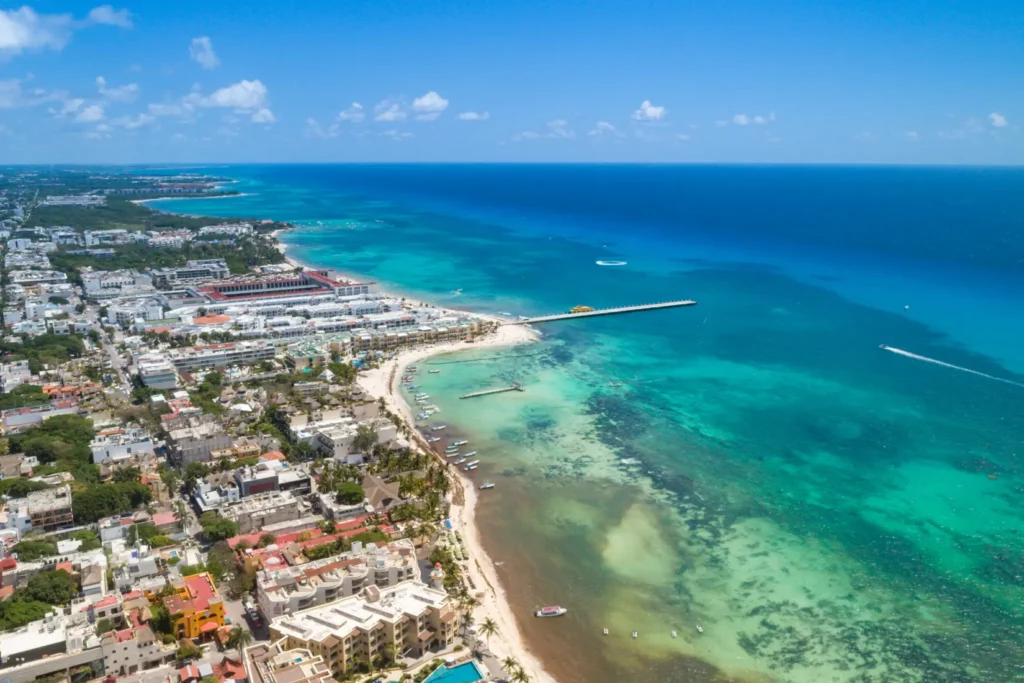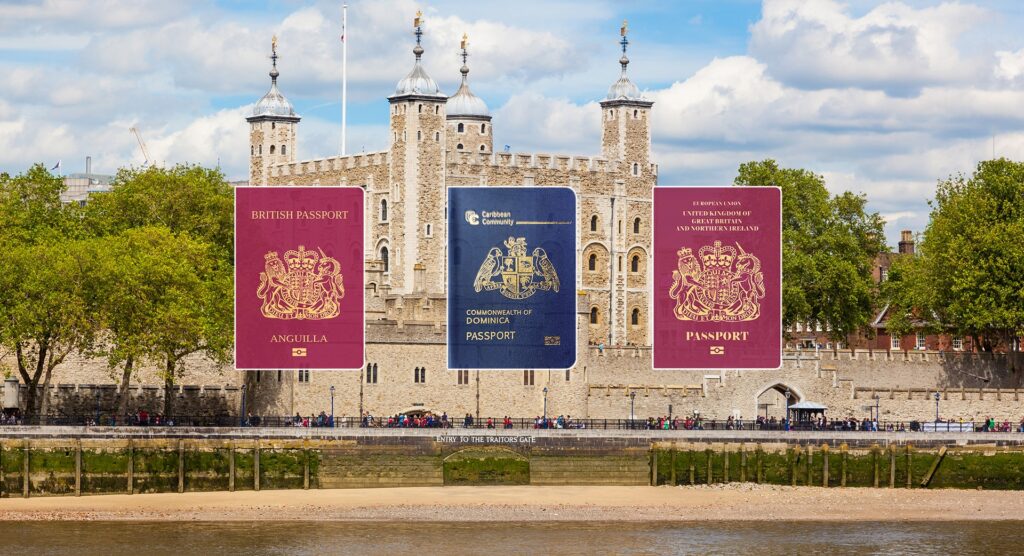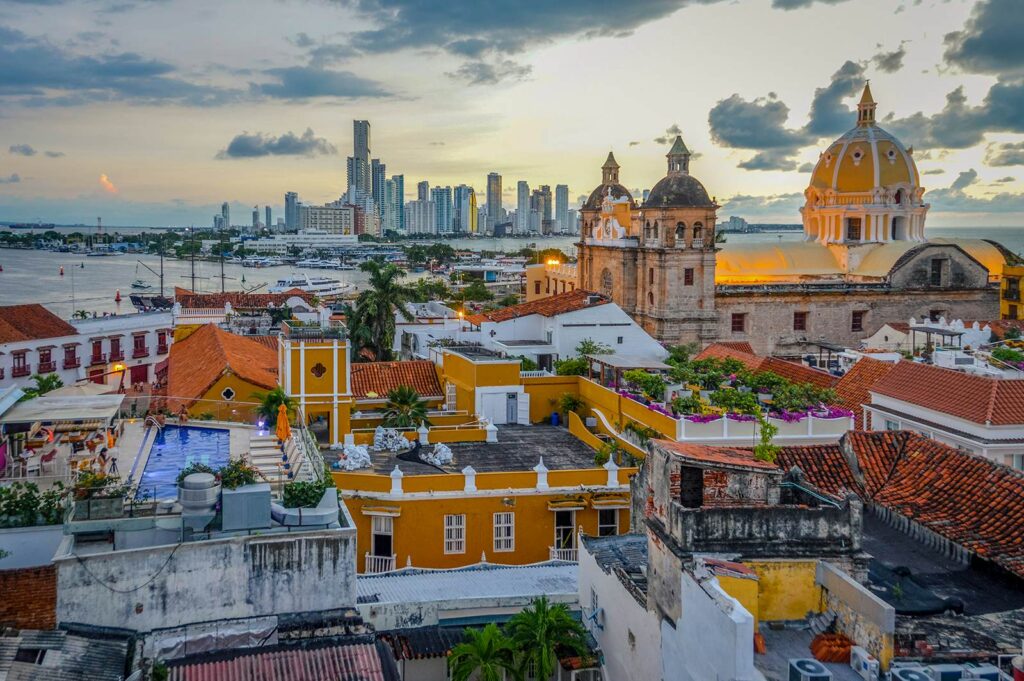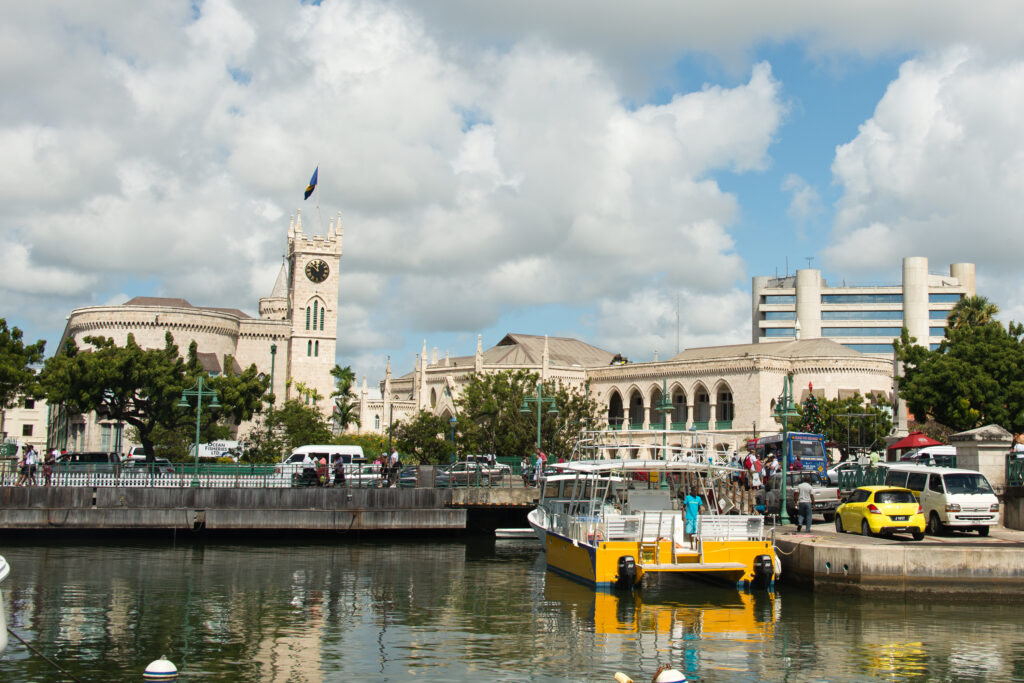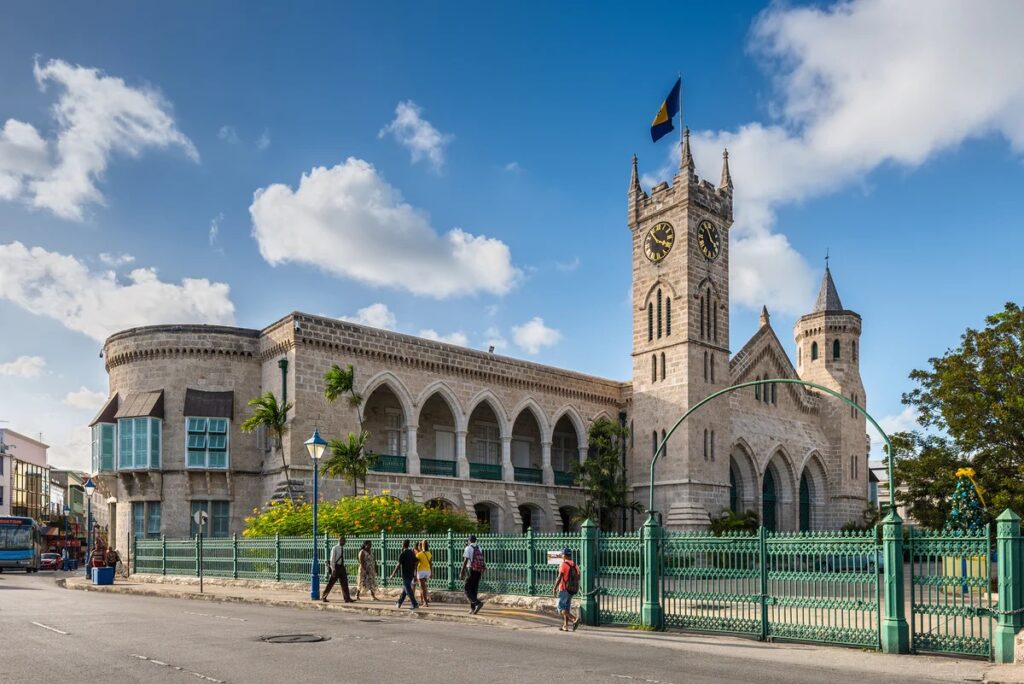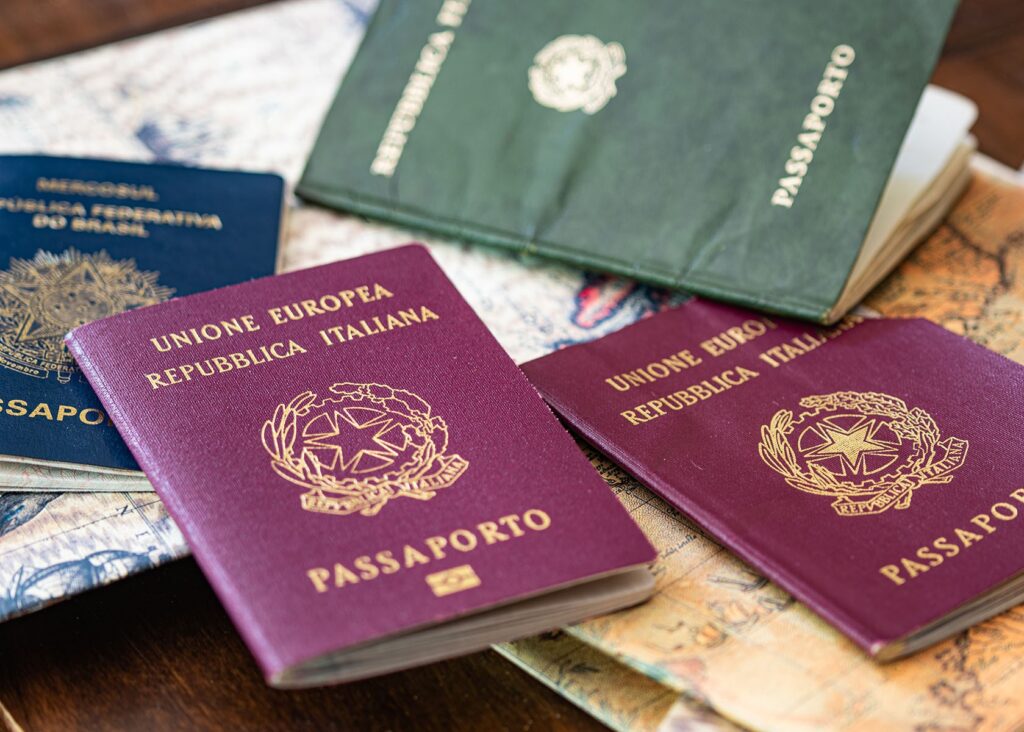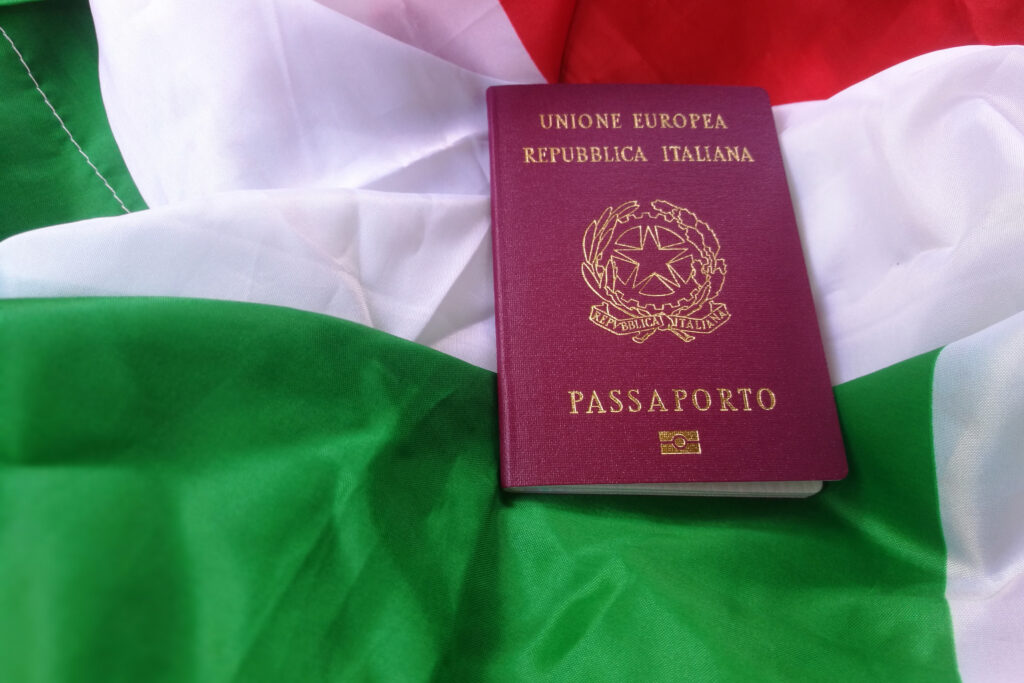In an era where tax rates seem to to keep increasing, and Western governments are yelling “tax the rich,” the appeal of relocating low-tax countries is increasingly attractive. This is especially true for affluent families, investors, and those who have generational wealth to protect. The opportunity to keep a larger share of one’s earnings is a compelling reason for many to consider relocation or investment in such jurisdictions. However, selecting the right low tax countries to live in and invest involves more than just eyeing lower tax rates. It requires a comprehensive understanding of residency requirements, local versus foreign income taxation, and the overall impact on tax liability.
Navigating the fiscal landscapes of low tax jurisdictions demands careful consideration of various factors, including social security obligations, the risk of double taxation, and the presence of tax treaties. This concise exploration seeks to simplify the complexities surrounding what defines a ‘low tax’ environment and how one can effectively benefit from these regimes. By clarifying the essential aspects and potential challenges, we aim to equip individuals and businesses with the knowledge to make informed decisions about leveraging low tax countries for financial betterment, thereby facilitating a more straightforward path to fiscal efficiency and security.
Benefits of Relocating to a Low Tax Country
Relocating to a low tax country offers undeniable financial incentives alongside lifestyle benefits that can significantly sway your decision to make the move. The reduction in income and corporate tax rates in these countries not only bolsters your disposable income, leading to enhanced financial freedom, but also presents an attractive landscape for investors and entrepreneurs. This setting allows for the potential accumulation of wealth in ways that higher tax jurisdictions simply cannot match. Countries with favorable tax regimes often become hotspots for those looking to maximize their earnings and invest wisely, providing a fertile ground for personal and business growth.
Furthermore, the lifestyle in low tax countries can be exceptionally appealing. Many boast superior infrastructure, healthcare, and educational systems, which are attractive to international businesses and expatriates contributing to the local economy. This, in turn, creates a high quality of life for residents. Additionally, the straightforward and transparent legal and tax codes in these countries remove unnecessary hurdles for businesses, allowing for smoother operations and growth. The blend of financial benefits with a high standard of living makes moving to a low tax country an attractive option for those seeking to improve both their fiscal health and life quality.
Practical Considerations in Low Tax Countries

When exploring the landscape of low tax countries, especially those in Europe or other regions with traditionally low income tax countries, weighing several practical aspects beyond just the taxes is essential. Here, we delve into significant considerations that could influence your decision to move.
Political Stability
In low tax countries, political stability is a cornerstone for sustainable living and investing. Countries with stable governments tend to offer a more predictable financial planning and security environment. For example, many low tax countries in Europe boast strong legal systems and governance structures that support both nationals and expatriates alike. Before making any moves, ensure you’re heading to a destination where political risk is minimal.
Culture and Lifestyle
The allure of countries with low taxes often extends beyond fiscal benefits. The unique culture and lifestyle of a new country can be just as enticing. Whether it’s the laid-back atmosphere of Portugal or the vibrant cities of Bulgaria, aligning your personal preferences with the local culture is crucial for a fulfilling expat experience. Research thoroughly to find a location that matches your lifestyle expectations.
Safety and Security
Safety and security are paramount when choosing a new home base. Fortunately, many low tax countries are also some of the safest in the world. For instance, low-tax jurisdictions such as Switzerland and Singapore rank highly on global safety indexes. Review crime rates, law enforcement presence, and general safety measures to ensure your chosen country offers peace of mind.
Community and Networking Opportunities
Integrating into a new country is significantly easier when taping into existing expat communities or networking circles. Low tax countries in Europe and Asia increasingly attract international professionals, creating vibrant communities. These networks can be invaluable for both personal and professional development, offering a support system and opportunities to connect.
Education and Schooling
If you’re relocating with family, education becomes a critical factor. Many low income tax countries offer high-quality international schools, ensuring a seamless transition for your children’s education. Assess the schooling options, curriculum standards, and language of instruction to ensure the best fit for your family’s needs.
Quality of Infrastructure and Services
The quality of infrastructure and services, from healthcare to public transport, can vary significantly across low tax jurisdictions. Countries like Luxembourg and the Netherlands are known for their robust infrastructure, contributing to a high quality of life. Investigate the accessibility and quality of essential services in your potential new home.
Flight Accessibility and Connectivity
For those who plan to travel frequently, either for business or pleasure, flight accessibility and connectivity from your new country are crucial. Countries with low taxes often have well-connected airports, but it’s worth checking flight routes, frequencies, and the presence of international airlines. This factor can greatly influence your mobility and ease of international travel.
By carefully considering these aspects, you’ll be better equipped to choose a low tax country that not only offers fiscal advantages but also aligns with your lifestyle and priorities.
Financial Considerations in Low Tax Countries

When exploring opportunities in low tax countries, whether in Europe or beyond, financial considerations play a paramount role. Your decision can significantly impact your disposable income, investment strategies, and overall financial health. Let’s delve into the critical financial considerations in countries with low taxes.
Tax Rates and Structure
Understanding the tax rates and structure is essential when considering a move to low tax countries. Generally, these jurisdictions offer appealing tax rates on personal income, corporate earnings, and capital gains. For example, in Bulgaria, both personal and corporate tax rates stand at 10%, which is among the most attractive rates within the EU. This flat rate system simplifies tax calculations and reduces liabilities, allowing for better financial planning and savings.
Furthermore, some low tax countries in Europe, like Hungary, offer one of the lowest income tax rates in the region, enhancing their appeal to individuals and businesses alike. It’s crucial to familiarize yourself with your potential new home’s progressive or flat tax systems to align with your financial goals.
Legal and Regulatory Framework
The legal and regulatory framework governing taxes in low tax countries can significantly affect your financial strategy. Countries with straightforward and stable tax laws provide a conducive environment for business operation and personal finance management. For instance, despite its low tax rates, Andorra has a clear tax system with corporation tax ranging between 2% and 10%. This transparency aids in navigating the tax landscape efficiently.
Understanding the legal prerequisites, such as residency requirements and tax liabilities for expatriates, is crucial. Some countries offer tax incentives and deductions for specific activities, which could further optimize your tax situation.
Current and Future Sources of Income
When relocating to a low tax country, consider both your current and potential future sources of income. This foresight will help you maximize the benefits of low tax regimes. Different countries offer varied advantages, whether your income stems from employment, business operations, investments, or retirement funds.
For instance, countries with low taxes on corporate income might be ideal if your income primarily comes from business activities. Meanwhile, jurisdictions with favorable pension and investment income policies could be more appealing if you’re eyeing retirement.
Banking and Asset Management Services
The availability and quality of banking and asset management services in low tax countries are pivotal. Efficient banking services enable the smooth transaction of business and personal finances across borders. Additionally, robust asset management services provide avenues for wealth growth and preservation in a tax-efficient manner.
Prioritize countries that offer a comprehensive network of banking and financial services, catering to the needs of international clients. This network ensures that managing your finances and investments in a low tax environment is seamless and advantageous.
Tax Treaty Network
The tax treaty network of a low tax country impacts how your domestic income is taxed and prevents double taxation. Countries with extensive tax treaty networks offer the benefit of reduced withholding taxes on dividends, interests, and royalties from investments in treaty countries.
This aspect is particularly crucial if you have income sources or investments spread across different countries. A robust tax treaty network can safeguard your income from excessive taxation and facilitate efficient cross-border financial flows.
In essence, when considering relocation to low tax countries, it’s crucial to dive deep into these financial considerations. Understanding the nuances of tax rates, legal frameworks, income sources, banking services, and tax treaty networks aligns you with the most beneficial tax environment tailored to your financial landscape.
Low Tax Countries in Europe
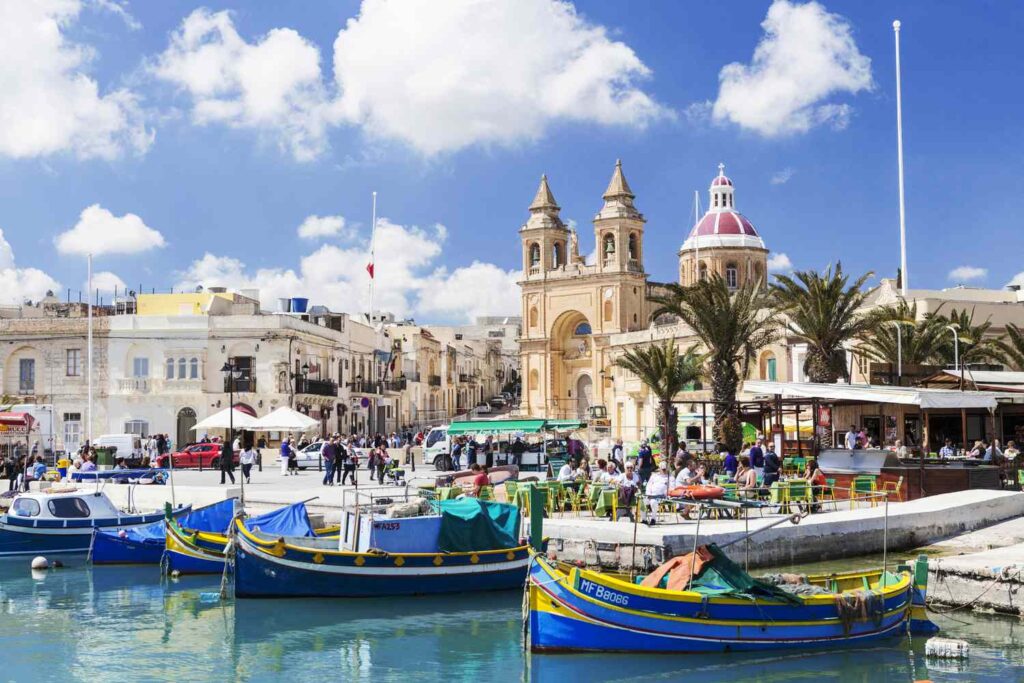
Exploring Low Tax Countries in Europe can open up new vistas for your financial planning and potentially enhance your quality of life. By considering nations with low taxes, you’re positioning yourself in environments where your income stretches further and your investments potentially thrive. Let’s delve into some of the most attractive low-tax havens within Europe.
Switzerland
Widely regarded as one of the premier Low Tax Countries in Europe, Switzerland stands out for its unique tax system. At the federal level, the tax rate is a modest 11.5%, and although cantonal and municipal taxes can increase this percentage, the overall tax burden is relatively low compared to other countries. With a tax structure that encourages wealth accumulation, Switzerland is especially appealing for high-net-worth individuals thanks to its lump-sum taxation option. This flat rate tax simplifies your financial obligations, allowing you to enjoy the country’s exceptional quality of life without the weight of hefty taxes. Whether you’re establishing a new venture or seeking a financially favourable home for your assets, Switzerland’s low and flexible tax regime is enticing.
Ireland
Ireland’s reputation as a low income tax country is bolstered by its appealing corporate tax rate of 12.5% for business activities, making it a hotspot for multinational companies and entrepreneurs alike. Additionally, the Irish Non-Domiciled Tax Resident Regime is a significant draw for individuals looking to maximize their tax efficiency. This regime enables non-Irish domiciles, who have become tax residents, to be taxed only on Irish-sourced income and on foreign income that is remitted into Ireland. With this favourable tax treatment and the opportunity to participate in the Immigrant Investor Program, Ireland offers a compelling mix of lifestyle and financial benefits.
Italy
Italy may surprise you as an entry on this list, but recent reforms have made it an increasingly attractive option for those seeking countries with low taxes. The introduction of flat tax schemes for new residents, offering a yearly tax cap for up to 10 years, showcases Italy’s commitment to attracting foreign talent and investment. This, combined with the country’s rich cultural heritage and high standard of living, positions Italy as a lucrative option for retirees and wealthy individuals looking for a tax-efficient European base.
Greece
Greece has recently introduced enticing tax incentives aimed at both retirees and digital nomads from abroad. With a flat tax rate on foreign-sourced income, Greece is carving out a reputation as one of the most welcoming low income tax countries for individuals looking to enjoy the Mediterranean lifestyle. Beyond the clear skies and crystal waters, the financial climate in Greece is increasingly sunny for those looking to benefit from low taxation on their global income.
Montenegro
Montenegro’s tax system is noteworthy for its straightforward and low rates, cultivating an environment ripe for investment and residencies. With a flat rate of 9% on personal and corporate income, Montenegro not only offers stunning Adriatic landscapes but also ranks among the countries with low taxes in Europe. This Balkan gem is making strides in attracting global citizens seeking a balance between quality of life and fiscal efficiency.
In each of these countries, you’ll find unique advantages and considerations. It’s crucial to delve deeply into the specific tax laws, residency requirements, and potential benefits before making your move. Whether your priority is the scenic beauty of the Swiss Alps, the rich history of Italy, the tech-friendly vibe of Ireland, the sun-drenched shores of Greece, or the emerging markets of Montenegro, there’s a low-tax haven in Europe that matches your lifestyle and financial goals.
Low Tax Countries in Asia

Asia is home to some of the world’s most dynamic economies, many of which offer attractive tax benefits that make them compelling for both individuals and businesses. Understanding the tax landscape in these regions can be crucial if you’re looking to maximize your financial efficiency. Let’s explore some key players in this part of the globe.
Singapore
Singapore stands out as a beacon for entrepreneurs and multinational companies alike, thanks to its favourable tax regime. The personal income tax rates in Singapore are progressive, starting at 0% and capping at 22% for incomes above a certain threshold. This structured approach not only ensures that low to mid-income earners are not overly burdened but also maintains a competitive environment that fosters economic growth. Singapore’s corporate tax rate is equally appealing, with a headline rate of 17%, one of the lowest among advanced economies. This has cemented Singapore’s reputation as a global business hub, attracting investment from around the world.
Hong Kong
Hong Kong, much like Singapore, boasts a simple and low-tax system that has contributed significantly to its status as a global financial centre. Individual tax rates follow a progressive system, with the standard rate set at 15%. On the corporate front, taxes are levied at 16.5% on assessable profits for corporations and 15% for unincorporated businesses. Such rates are why Hong Kong is seen as one of the most business-friendly environments globally, allowing companies and professionals to thrive.
Thailand
Thailand offers a relatively competitive tax environment, particularly interesting for individuals. The country has a progressive income tax system, where rates start at 0% and peak at 35% for high-income earners. On the corporate side, the standard rate is 20%, positioning Thailand as an attractive location for businesses looking to expand in Southeast Asia. Furthermore, Thailand has been making strides in simplifying its tax policies to attract foreign direct investment, enhancing its appeal as one of the countries with low taxes in the region.
Malaysia
Malaysia is another standout in Asia, known for its relatively low personal and corporate tax rates. The maximum personal income tax rate is 30%, targeted at those in the higher income brackets, while most earners fall into lower tax bands. Companies benefit from a corporate tax rate of 24%, with a reduced rate of 17% for small and medium enterprises on the first MYR 600,000 of income. Moreover, Malaysia’s investment-friendly policies, including tax incentives for sectors identified as strategic to the nation’s development, underscore its position as one of the low tax countries that continue to attract international business.
Low Tax Countries in the Caribbean

Exploring the Caribbean reveals a fascinating insight into a world where the sun never ceases to shine, and the tax rates often inspire a breath of relief among expatriates and investors alike. Within this paradise, you’ll find some of the most enticing low tax countries, not just in terms of weather but also in financial attractiveness.
Cayman Islands
The Cayman Islands is an unrivalled contender in the world of low-tax countries. Renowned for zero corporate and income taxes for residents, this British Overseas Territory stands out for more than just its fiscal policies. The quality of life, complemented by stunning sunsets and vibrant marine life, makes the Cayman Islands a perfect retreat for professionals eyeing a tax-friendly domicile. The safety and small-community feel, with a population of around 60,000, add to its appeal, pivoting the Cayman Islands as an ideal spot for diving enthusiasts and those prioritizing security and tranquility in their living environment.
The Bahamas
Venturing a bit further, The Bahamas presents another fascinating option for those scouting low income tax countries. With no personal income tax, this archipelago lures individuals and families seeking a tax-efficient and luxurious lifestyle. The Bahamas is not just about sandy beaches and crystal-clear waters; it’s also a hub for international business, thanks to its favorable tax regime and strategic location. The vibrant culture and robust infrastructure make it a compelling choice for anyone looking to blend business with pleasure in a tax-friendly country.
Antigua and Barbuda
Antigua and Barbuda, a twin-island state, offers more than just picturesque landscapes and an opportunity to bask in nature’s splendour. It’s also one of the countries with low taxes, attracting global citizens through its Citizenship by Investment Programme. This initiative opens doors to a life in a serene paradise and offers attractive tax incentives, including no global income, inheritance, or capital gains tax. This makes Antigua and Barbuda a hotspot for investors and individuals seeking to stretch their financial wings in a supportive tax environment.
Barbados
Often recognized for its lush landscapes and rich cultural heritage, Barbados also ranks among the low tax countries. With an enticingly low corporate tax rate, especially for entrepreneurs and investors, Barbados stands as a beacon for businesses aiming for expansion in a tax-efficient jurisdiction. The government’s forward-thinking approach to tax reform has strengthened the nation’s appeal to international companies and savvy investors looking for a blend of lifestyle and strategic financial planning.
St. Kitts and Nevis
Closing this Caribbean tour at St. Kitts and Nevis, you’re introduced to an environment that is beautiful to live in, but also its attractive tax policies. Known for its citizenship by investment program, this country provides a gateway to zero personal income tax alongside the promise of a prestigious passport. It’s a particularly compelling choice for those aiming to enhance global mobility while enjoying life in a low tax country. St. Kitts and Nevis epitomizes the perfect balance between enjoying a tranquil island life and optimizing one’s tax situation.
Low Tax Countries in Latin America
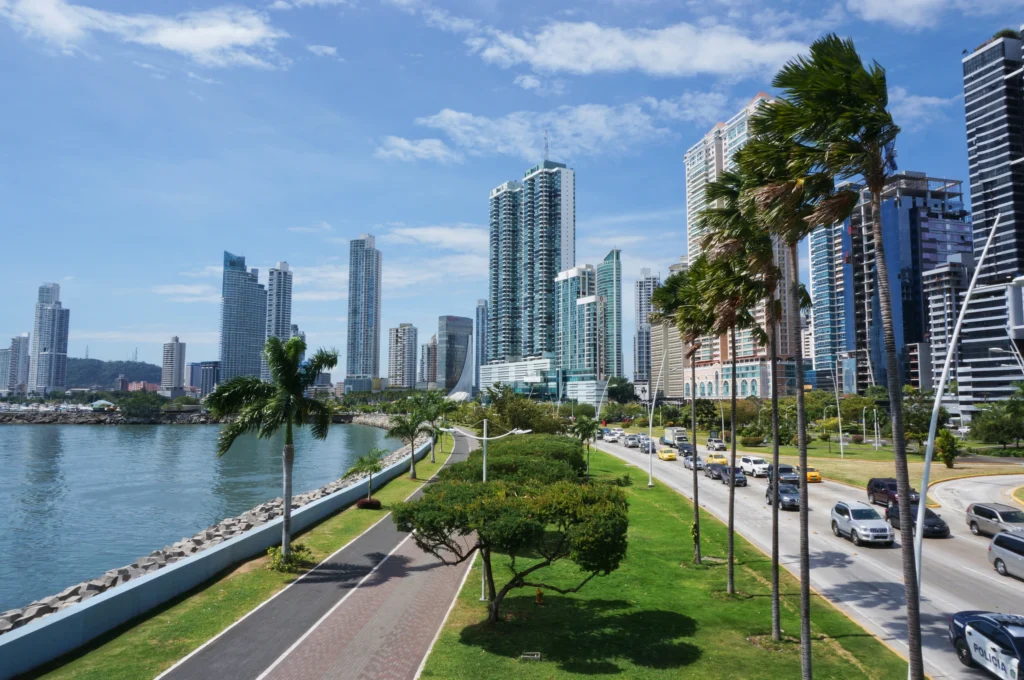
Exploring countries with low taxes in Latin America could be a strategic move if you’re aiming to optimize your tax situation. This section delves into nations that not only offer a pleasant living environment but also favorable tax regimes. Whether you’re looking for low income tax countries or places where corporate levies are minimal, the insights provided here could be invaluable.
Panama
Panama stands out as a prime choice for those seeking a country with low taxes in Latin America. It’s a sought-after retirement destination and a haven for businesses thanks to its territorial tax system. This means income earned outside of Panama isn’t subject to local taxation. However, it’s important to note that Panama does levy capital gains and income taxes on locally sourced income. But the silver lining is, with adequate planning, you could significantly reduce your tax liability, making Panama an attractive option for expatriates and international businesses alike.
- Zero Tax on Foreign-Sourced Income: By taking advantage of Panama’s territorial tax system, you ensure that your foreign-sourced income remains untaxed.
- Corporate and Individual Tax: Only income originating within Panama is subjected to taxation, providing ample opportunities for tax optimization.
Uruguay
Uruguay might not often feature in discussions about low tax countries in Latin America, but it undoubtedly deserves a spot. This country boasts one of the highest levels of safety in the region and attractive tax policies for foreigners. One of the key benefits is the ten-year tax holiday on foreign-sourced income for new residents. Post this period, foreign income is taxed at a relatively low rate. Uruguay’s welcoming residency and citizenship policies, compounded with its serene coastline, make it an appealing destination for those seeking a blend of fiscal advantages and quality of life.
- Ten-Year Tax Holiday: Uruguay’s generous offer for new residents, regarding their foreign-sourced income, is hard to overlook.
- After Tax Holiday: Following the initial ten years, a modest tax rate applies, making long-term financial planning more predictable.
Costa Rica
Costa Rica is often celebrated for its lush landscapes and commitment to environmental conservation, but it’s also among the countries with low taxes that attract expatriates and investors. While it doesn’t offer the zero-tax policy of some other jurisdictions, Costa Rica’s taxation system is comparatively moderate, especially for those who earn their income from outside the country. The nation’s approach to taxation, with its political stability and high quality of life, makes it an attractive option for individuals and businesses.
- Moderate Tax Rates: Though not the lowest, Costa Rica’s tax rates are reasonable and can be favorable with the right financial planning.
- Quality of Life: Beyond taxes, the country’s emphasis on ecology, peace, and community makes it a holistic choice for many.
In exploring these low tax countries in Latin America, it’s clear that each has its unique set of advantages, from Panama’s territorial tax system to Uruguay’s decade-long tax holiday and Costa Rica’s balance of moderate taxation with high living standards. These nations offer compelling reasons to be considered for those considering a move or seeking investment opportunities.
Challenges in Some Low Tax Countries

While the allure of low income tax countries is undeniable, it’s important to look beyond tax rates and understand the broader picture. Moving to countries with low taxes can offer significant benefits, but these come with their own set of challenges that you should be aware of. This section delves into some common hurdles that might affect your decision.
Banking and Financial Services
In many low tax countries, especially those not as developed as their higher-tax counterparts, banking and financial services can present unexpected difficulties. Access to international banking might be limited, and the services offered might not meet your accustomed standards. For example, while Serbia boasts a competitive tax system with a flat rate of 15%, its financial systems are considered poor, and it hasn’t adopted international compliance standards such as the CRS (Common Reporting Standard). This could pose issues for businesses or individuals who require transparent and compliant international banking solutions.
Moreover, opening a bank account can be cumbersome and time-consuming in some low tax jurisdictions. You might face a lot of bureaucracy, or in some cases, banks may be hesitant to serve foreigners at all. This can complicate financial planning and transactions, affecting both personal and business affairs.
Cost of Living
It’s a common misconception that low tax countries automatically equate to a lower cost of living. While tax rates are a significant aspect of financial planning, they aren’t the only factor that determines your overall cost of living. In certain low tax havens, such as Monaco or Hong Kong, you might find that housing, utilities, and everyday expenses far exceed what you’d pay in other countries, even those with higher tax rates. For instance, during events like the Monaco Grand Prix, rental costs can skyrocket to over US$10,000 a night.
When considering a move based on tax advantages, ensure you’re also factoring in the cost of living index. Countries like Andorra might offer attractive tax rates with a personal income tax of 10%, but it’s essential to weigh these benefits against the cost of living and whether the overall financial conditions match your expectations.
Infrastructure and Development
Infrastructure and development are crucial aspects often overlooked when considering relocation to low tax countries in Europe or elsewhere. While a country might offer enticing tax incentives, assessing whether its infrastructure meets your needs is important. For example, countries like Bulgaria, despite having the lowest EU income tax rate of 10%, suffer from underfunded public education and a language barrier that might be difficult for families or individuals seeking high-quality schooling.
Similarly, the quality of healthcare, transport, and internet services can vary greatly between countries, and low tax jurisdictions are no exception. Before moving, it’s wise to research the infrastructure developments and how they align with your lifestyle and work requirements. Ensuring that the country’s development level matches your expectations is essential for a smooth transition and a comfortable living experience.
As you navigate the attractive proposition of relocating to low tax countries, it’s crucial to take these challenges into account. Balancing the tax benefits against potential hurdles will help you make an informed decision that aligns with your long-term personal and financial goals.
Who Should Consider Moving to Low Tax Countries?

Deciding whether to move to one of the countries with low taxes involves weighing several factors. This is all specific to your lifestyle, career, and financial goals. If you’re pondering which path to take, here are groups of people who might find low tax or no tax countries especially appealing.
1. Digital Nomads and Remote Workers
With the rise of remote work, digital nomads seek destinations that offer incredible living experiences and favourable tax conditions. Low-income tax countries provide an attractive proposal for those looking to maximize their earnings while exploring the world. Despite their high living costs, destinations like Monaco and the Cayman Islands offer zero income tax, making them sought-after by those who can work from anywhere.
2. Entrepreneurs and Business Owners
Moving to a country with a lower corporate tax rate can significantly impact your finances if you’re an entrepreneur or own a business. With 16 countries adjusting their corporate tax rates just last year, it’s crucial to research and consider jurisdictions that support business growth. Countries with low taxes in Europe such as Monaco, which reduced its corporate tax rates, might be an attractive option for businesses looking to expand their operations while minimizing tax liabilities.
3. Wealthy Families
Individuals with substantial wealth often find low or no-tax countries appealing due to the significant tax savings on income, capital gains, and inheritance. Jurisdictions like the United Arab Emirates or Monaco allow wealth accumulation without the hefty taxes imposed in other countries. However, it’s vital to consider that some of these countries might compensate through other forms of taxation or higher costs of living.
4. Retirees
Countries with low taxes can offer more bang for your buck for those looking to stretch their retirement savings further. A lower cost of living combined with favourable tax conditions can make retirement funds last longer, affording a comfortable lifestyle during your golden years.
If you’re considering moving to a low-tax country, you’ll also need to navigate the complexities of international tax treaties and understand how your tax situation could change based on your residency status. Each country’s unique tax landscape requires meticulous research and possibly consultation with a tax professional to make the most informed decision for your personal and financial circumstances.
Conclusion

The journey through low tax countries offers rewards but comes with its complexities, from banking challenges to potential high living costs. The draw of lower taxes is compelling for digital nomads, entrepreneurs, high-net-worth individuals, or retirees. However, moving requires weighing these benefits against possible drawbacks and keeping up with changing international tax agreements. As nations like France, Greece, and Monaco evolve their tax policies to attract more residents, staying informed is key.
Are you thinking about leveraging low-tax benefits? Partnering with specialists like Dan Merriam and Offshore Freedom can significantly ease this transition, providing crucial guidance to leverage low tax advantages fully.
Learn More
Offshore Freedom™ is a boutique coaching and consulting firm that helps investors and entrepreneurs live and invest internationally. We help our clients grow their businesses, pay less taxes, buy more real estate, and take advantage of global residency and citizenship by investment programs worldwide.
Schedule a 1 on 1 consultation with Dan Merriam, and let us help you design the life of your dreams and live the Offshore Freedom™ lifestyle. Ask questions and get answers about international real estate, tax planning, offshore banking, second residencies, citizenship by investment, lifestyle design and more.
This article is for informational purposes only. It should not be considered financial, tax planning, investment or legal advice. Consult a certified financial or investment professional in your jurisdiction of interest before making any major financial or investment decisions.
Writer in Tax Reduction, International Tax Planning, Travel, Citizenship by Investment, The Caribbean, Low Tax Countries, Tax Havens, Switzerland, Singapore, Thailand, Malaysia, Cayman Islands. Digital Nomad, Wealthy Expat, Second Residence, Real Estate Investing, Asset Management. Lifestyle Planning, Countries with the Lowest Taxes, Company Formation, Offshore Banking, Asset Protection, Technology, Entrepreneurship



